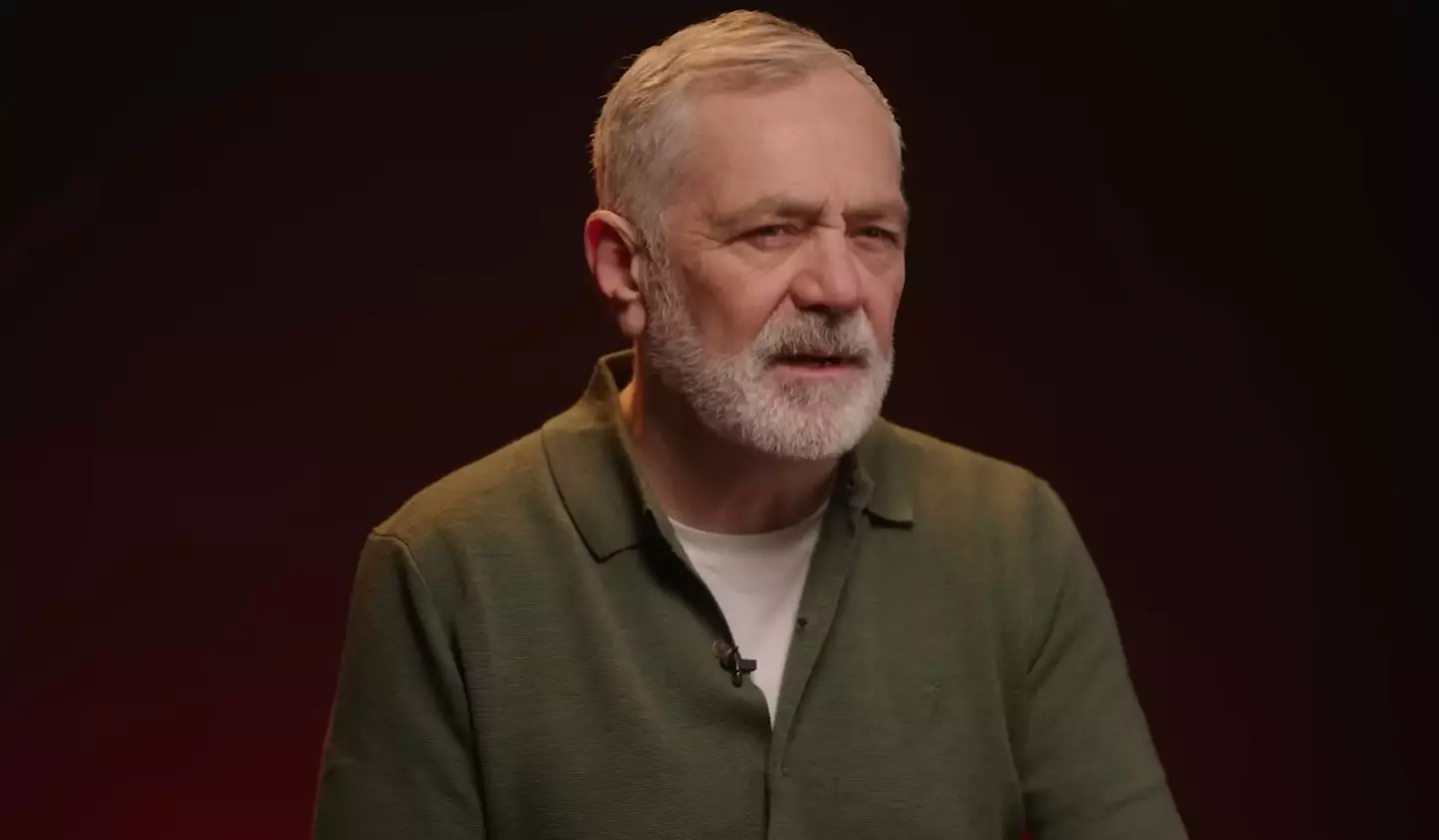.jpg)
Although their aim might be to get away with murder, a lot of killers can't help but turn to technology when committing a crime.
Analysing an offender's online activity is one of the first ports of call for police during an investigation, but despite knowing this, criminals can often be quite careless when it comes to their digital footprint.
Renowned criminologist David Wilson has now revealed why he believes it is so common for culprits to leave an electronic trail of evidence behind, even though it massively heightens the risk of being caught.
The former prison governor, who climbs inside the minds of killers for a living, reckons there's a combination of factors at play.
Advert
"We live in an era of endless self-expression - even if we’re committing crime," Wilson, who previously revealed the main reason behind most murders in the UK, told LADbible.
"The lure of an audience for who we are almost transcends common sense. People don’t feel that they’re important unless they are documenting their life, because it’s almost as if an unwatched life has no meaning."

He believes a lot of murderers are motivated by achieving notoriety and the hopes of getting their name in the history books, although, this is hardly a new thing - as even Jack the Ripper was an exhibitionist.
"We live in a snapshot culture, where documenting your life online becomes this endless way of expressing who you are," the professor of criminology explained.
Advert
"Even if who you are involves you being a murderer, you still have this need to say who you are and you want that audience to acknowledge you.
"We have technology now that allows for that snapshot culture," the author of My Life with Murderers explained. "But if you think about it, Jack the Ripper wrote letters to the press. Colin Ireland called the police.
"We mustn’t think this is a new form of behaviour, but what is new about this behaviour is that we live in a culture which has put technology into the hands of everybody.
"Therefore, we self-express through that technology, even if we’re also committing crime. And in one way, thank God we do, because by doing so, we give police another tactic that they can use in solving crime."
Are incriminating online searches impulsive or audacious?
Discussing whether incriminating online searches are often made by criminals in a panic or in an act of sheer brazenness, Wilson said it 'can be either'.
Advert
He explained that killers aren't typically 'criminal masterminds' and in the heat of the moment, most don't consider the consequences of their actions, let alone their immediate next steps.
"Murderers tend to forget that when you kill someone, they have this problem of what to do with the body or the bodies," the criminologist told LADbible. "How do they dispose of the body or the bodies?

"Because if they simply leave them to be discovered by the police, it is much easier for them to be caught.
"They're doing online searching because they want some specific information that’s both going to help him both in the commission of the offence and also once they have committed the offence.
Advert
"But it’s counter intuitive, isn’t it? It’s counter productive. It seems stupid."
Killers caught out by digital footprint
Both in the UK and further afield, the outcome of a host of murder trials has hinged on incriminating internet searches made by the suspect and damning data from their devices.
Take the BTK Killer - AKA Dennis Rader - for example, who constantly taunted police in the US with cryptic messages during his serial killing spree, which ultimately proved to be his downfall.
He sent a computer disc to taunt cops in 2005, but was unaware that digital forensic experts would be able to trace the metadata right back to him, allowing them to uncover his identity after more than 30 years.
Advert
Then there is Robert Petrick, who was convicted of murdering his wife Janine Sutphen in 2003. Although prosecutors described as a 'computer geek', he wasn't clever enough to clear out his computer hard drives.
A court in North Carolina heard how he made internet searches for the terms 'neck snap break' and 'hold', as well as downloading a documenting titled '22 ways to kill a man with your bare hands' and researching the 'depth and topography of a lake' where his spouse's body was found, The Register reported. Petrick was given a life sentence without the possibility of parole.
'Suitcase Killer' Melanie McGuire found herself in a similar predicament when investigators had a look through her internet search history after the remains of her husband Bill were found floating in a Virgina bay in three suitcases.

The fertility nurse still maintains her innocence as she serves life in prison for the 2004 murder, but a jury convicted her as the digital clues she left behind - as well as a myriad of other overwhelming evidence - was too hard to ignore.
Police found the New Jersey native had looked up things including 'undetectable poisons', 'how to purchase guns illegally' and 'how to commit murder' before fatally shooting and dismembering her spouse.
Closer to home, there is the likes of Danyal Hussein, who was slapped with two concurrent 35-year jail sentences for the murders of sisters Bibaa Henry and Nicole Smallman in a random attack in London in June 2020.
Police found he had spent a lot of time on online forums where he discussed spells and potions linked to Satanic ideology, according to the BBC, which was the motivation behind the killings.
'Google killer' Anurag Johri was also given a life sentence for the 2005 murder of his estranged wife Deepti after police found he had made an internet search for how to murder someone without getting caught.
Why is it so common?
So if it's such an obvious mistake to make, why do villains fall into the trap of leaving a digital trail for police to pick up on so much?
Wilson believes there is typically a 'kind of living in the moment aspect to their character', as he explained: "Which means that they’re not rationally thinking through what they’ve done and how they’re going to be apprehended.
"So there’s that person - but then there’s another type of personality, who are just simply recording an extraordinary event.
"Even if they know they are going to be caught, they want the documenting of that extraordinary event, because it’s a kind of narcissistic need to be viewed and seen, even if they are being viewed and seen in the moment at which they are committing a crime," Wilson said. The other thing is, our culture is one which is increasingly devoid of shame.
"It almost feels that because there is a lack of shame, a lack of remorse, a lack of understanding that you have harmed someone else, that has also permitted people to feel they want to engage in this kind of showmanship, even if it's about something which is shameful.
"These seemingly inexplicable behaviours emerge, not because of the individual pathology of the offender, but because culturally, that is where we are at this point in time."
Despite authorities often having murderers dead to rights thanks to their self-incriminating digital footprint, a host of killers will still deny the charges against them, even though a court case seems futile in the eyes of the public.
But according to Wilson, this is just the final act of that aforementioned 'showmanship' - and an offender will want to drag things out for as long as possible.
He continued: "How much more attention can you get by pleading not guilty than you would be able to get you simply accepted you had done it? It'd be over and done with in a day.
"Whereas, by pleading not guilty, you've got days on end of the trial. People are going, ‘Why on earth did they do that?’ What better way of drawing attention to yourself."
Topics: Crime, True Crime, Technology, Originals, UK News